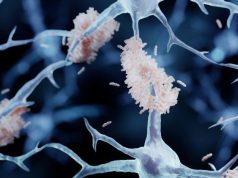Effect of testosterone on anterior prefrontal cortex engagement decreases from middle-to-late adolescence, then shifts into activational role
By Elana Gotkine HealthDay Reporter
FRIDAY, June 23, 2023 (HealthDay News) — Between middle and late adolescence, the effect of testosterone on anterior prefrontal cortex engagement decreases and shifts into an activational role by young adulthood, according to a study published online June 21 in Developmental Science.
Noting that during puberty, testosterone transitions from a neurodevelopmental to a social-sexual activating hormone in rodents, Anna Tyborowska, Ph.D., from Radboud University in the Netherlands, and colleagues examined whether this functional transition is also present in humans. The role of testosterone on neural control of social emotional behavior during the transitions from middle-to-late adolescence and into young adulthood was assessed using a prospective longitudinal design in 71 individuals tested at ages 14, 17, and 20 years. Participants performed a functional magnetic resonance imaging-adapted approach-avoidance task involving automatic and controlled actions in response to social emotional stimuli.
The researchers found that the effect of testosterone on anterior prefrontal cortex engagement decreased between middle and late adolescence in accordance with predictions from animal models and shifted into an activational role by young adulthood, preventing neural control of emotions. This change in function was accompanied by increased amygdala reactivity modulated by testosterone.
“Testosterone typically tends to be associated with aggression or dominance behavior, whereas in fact it has multifaceted roles across different developmental periods,” Tyborowska said in a statement. “The findings of the current study are important for understanding both typical and atypical maturational trajectories of the brain, as well as considering the impact of external factors (such as stress) on brain function and development.”
Copyright © 2023 HealthDay. All rights reserved.








